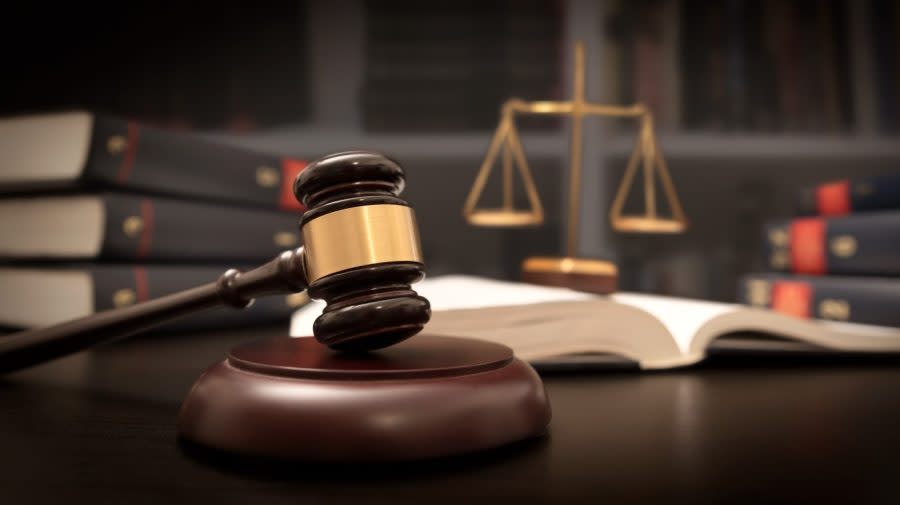Judge delays verdict in trial for two Oath Keepers

A verdict in the trial of two Oath Keepers in connection with the Jan. 6, 2021, Capitol attack is expected Wednesday after a federal judge said he would deliberate for at least a day.
James Beeks and Donovan Crowl faced a stipulated bench trial Tuesday during which prosecutors claimed the pair joined up with other members of the right-wing extremist group Jan. 6 intending to stop the certification of the 2020 presidential election — a claim that defense attorneys refuted.
The trial lasted just half a day because Beeks and Crowl decided to waive their right to a jury trial, instead agreeing to allow U.S. District Judge Amit Mehta to decide their fate based on a set of agreed-upon facts.
Beeks attorney Greg Hunter told The Hill that stipulated trials are “extremely rare,” but that defense counsel made the decision in part based on Mehta’s familiarity with the case material. Mehta has overseen all the high-profile Oath Keeper trials in connection with the riot.
The defendants face charges of conspiracy to obstruct an official proceeding and civil disorder. Prosecutors agreed to dismiss three other felony counts and a misdemeanor at the end of the proceedings.
Since Beeks and Crowl agreed to stipulations, they could argue that a reduced sentence is warranted if convicted.
On Jan. 6, Beeks and Crowl did not work as lone actors; they worked in tandem with other Oath Keepers members, Assistant U.S. Attorney Troy Edwards argued in court Tuesday. He cited their ascension up the side of the Capitol in a military-style “stack” formation and other in-step moments throughout the day as evidence of a “shared goal.”
“At every pivotal moment where you can choose what to do or not to do, Crowl and Beeks repeatedly chose to be with the group,” Edwards said.
Edwards said that the pair traveled with other Oath Keepers from the White House Ellipse to the inside of the Capitol and did not leave the building until after they were pepper sprayed by officers – and even then, waited for other members of the group before leaving the grounds.
“They weren’t stunned by what happened…they huddled,” Edwards said of the defendants.
But defense attorneys for the two Oath Keepers argued that the government failed to prove the defendants acted with the intent of stopping the certification of the vote, suggesting instead that they were “hangers-on” and “wannabes” within the crowd.
“If he didn’t know what others intended, he couldn’t intend to do it,” Hunter, Beeks’ attorney, argued in closing remarks, after Beeks waived his right to represent himself just minutes before he was meant to begin his closing arguments.
A former actor, Beeks was playing Judas in a national tour of the musical “Jesus Christ Superstar” before his arrest. The Florida native was also a Michael Jackson impersonator and wore a “BAD” world tour jacket that day, standing out from other Oath Keepers donning camouflage paramilitary gear.
Prosecutors argued that on Jan. 6, Beeks tried to push through a line of law enforcement officers guarding the hallway leading to the Senate chamber. He stayed nearby to Crowl and Oath Keeper Jessica Watkins, they said.
An ex-Marine, Crowl attended Jan. 6 with Watkins as part of the Ohio State Regular Militia. Watkins was tried and acquitted of seditious conspiracy but convicted of other serious felonies resulting in a prison sentence of eight and a half years.
On Tuesday, prosecutors described Crowl as Watkins’ deputy and an “ideological equal.” Watkins, they said, was a “walking, talking narrator of this group’s intent.” Throughout the day on Jan. 6, she shared the group’s movements in a walkie-talkie app group chat.
Carmen Hernandez, Crowl’s attorney, countered that Crowl – who she said is a veteran of the Vietnam War and has been treated for PTSD – has “alcohol problems,” suggesting that his relationship with Watkins was “fortified by alcohol” given she owned a bar in Ohio, which has since shuttered.
Hernandez also presented evidence showing conversations between Crowl and Watkins, where they discussed providing security for longtime Trump ally Roger Stone. Hernandez said that Crowl headed to D.C. on Jan. 6 with Stone’s security as the only plan in mind – the “key to the case,” she argued.
Their actions that day paint a different picture, Edwards argued in the government’s rebuttal.
“Ignorance is not a defense in this case,” he said. “It cannot be.”
Former Oath Keepers general counsel Kellye SoRelle, who was set to be a third co-defendant in the proceedings, was determined to be mentally incompetent to stand trial. Until she is determined competent to stand trial, Beeks and Crowl’s trial marks the last high-profile Oath Keepers case linked to the riot.
Six Oath Keepers, including group leader Stewart Rhodes, have been convicted of seditious conspiracy for their roles in plotting to stop the certification of the 2020 election. Several additional members were convicted of other serious felonies.
In all, more than 1,000 rioters across the country have been charged in connection with the Capitol attack, according to the Justice Department’s most recent count.
Updated at 2:11 pm.
For the latest news, weather, sports, and streaming video, head to The Hill.

